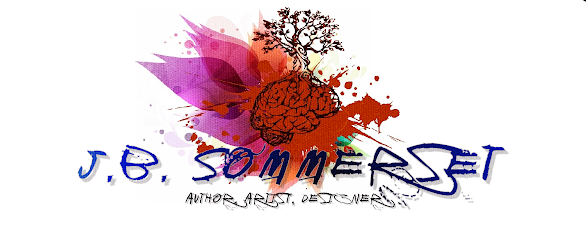More on editing...
Hope
everyone had a happy thanksgiving!
Today
I want to talk about what I hate: editing. Some of you might like this process,
I do not. But I also acknowledge that despite my grievances with it, editing is
necessary. Today I am going to walk you guys through my process.
Right now, I am working
on The Lost Pilgrim. I have been editing it for almost three
months. The editing process can be so frustrating, and long. In part, because
I am a busy person, I have a lot of work to do in my novels, and editing isn’t
my strong point. For me, it doesn't come naturally, and I empathize with people
who have the same issues I do.
So, I
decided to share some of my editing processes.
Understand that when a piece is
done and ready for the editing process, it usually takes longer to edit
than it did to write (if that isn't true for you, then you are one of the lucky
ones). When I wrote Mid-Life Mike, it took me nine days to write
all 180 pages, but it took me well over a month to edit it and create the document
for Epub. On average, a 250-page manuscript will take me a couple of weeks to
write, and around two to three months to edit.
The process starts with writing and creation. This is the part I excel at. The first book I wrote and published, Patchwork Indigo, took me a month to write (381 pages, the finished project was 333 pages). I killed a fair amount of that book. But I had no problem getting it out, I puke out ideas quicker than I can write them down. This is called logorrhea, and just like the other "rhea", it happens quickly and without warning.
Then, I must
edit the mess to make it acceptable... I say and then sigh with exasperation.
When I
edit, the first thing I do is have a close friend read it (if they are
available). The person I let read it comes from the “old school” of literature. She doesn't
believe in pulling punches, including calling me names and telling me the
simple truths about my writing. She is an editor, but I seek her out for honesty, not her editing. She has worked on more than half of my published manuscripts. I am lucky to
know someone who won’t lie to me to avoid hurting my feelings. I owe a lot to
this part of the process; through her critique, I have learned about where I
need to improve as a writer. Sometimes I rewrite the entire thing before
moving on. She applauds me and waits for another copy.
Next, I dig into the red-marks
and start fixing the story (macro-level). In this step, I look at the story objectively,
then I "kill my darlings". I take a chainsaw to the manuscript.
I remove the things that don't contribute to the story. I fix logic errors and continuity
issues. I burn down buildings and trash characters. Minimum. If I don't cut more than 20 pages, I go back through
it again.
Then I look at the story again
in different ways and try to see what I am missing. In this process, I do several
things. Sometimes I enlarge the print and read it out loud, this helps check
for flow, tone, and atmosphere. If I can read it out loud without stumbling and
it sounds good, then I move on to the next part. I have Microsoft word read it
back to me. This helps me check for small mistakes, and it also lets me hear it
without inflection which gives me a look at the mechanics of the work. If I
feel good with the result I move to the next step.
The next step is where I look at
the use of language. I use MS word to check for sentence structure. I hit the
hotkeys- control F. I search the whole document for connectors,
conjunctions, articles, etc. As an example, I use the word "and"
too much. Out of a 70000-word document, 3000 of those words were
"and". I trim that down and rewrite the sentences. I do this with all
the connecting language to see if I can remove more from the story or re-order
it in better ways. I also do this with words I get confused such as
"wonder" versus "wander", straight versus strait, etc. (I have a list). When I have
completed this part, I move on to the last part of my process.
I give it another read. This is
usually the ninth or tenth time through. At this point, I usually have fallen
out of love with my work and want to move on to something new and exciting. But
like any good lover, I see it through to the bitter end. The exception to the
rules is my long term work (such as The Last of Those Who Walk, In
the Belly of the Minnow, and A Time to Run). When I finish and
make final adjustments (they are usually small), I format for Epub/Ebook. I
hate this part the most. It doesn’t take that long, but it's frustrating
because it has to be uploaded and checked again and again until it works on e-readers
and looks good.
I have
a final checklist I go through and check the formatting one last time, then I publish.
Throughout
the whole process I work on the cover of the book. I order proofs along the
way, but they don’t see the light of day until the print is done. This is so my
cover and print will be done at the same time and I won’t have to wait for the
cover to get done. When I finish the editing, I finish the book.
I hope
this has been informative, and I hope you have gained some insight into the
editing process.
Until
next time…
Cheers!




Comments
Post a Comment